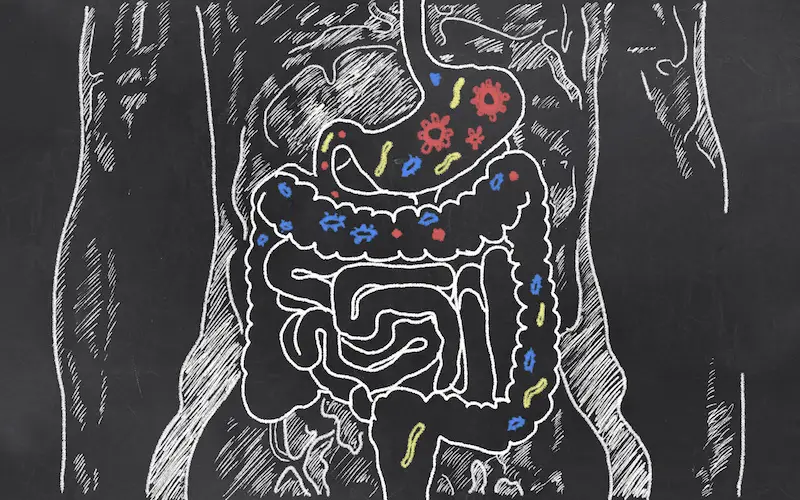The link between gut health and mental well-being is an increasingly well-studied and understood area of health and wellness. While it is still an active area of research, it is clear that the health of our gut can have a significant impact on our mental well-being.
The gut is home to a complex ecosystem of microorganisms known as the microbiome. This microbiome plays a number of important roles in the body, including supporting the immune system, aiding in digestion, and synthesizing certain vitamins and other nutrients. The microbiome is also thought to play a role in the development and functioning of the brain and nervous system.

There is increasing evidence to suggest that the health of the microbiome can have an impact on mental health and well-being. For example, research has shown that the presence of certain types of bacteria in the gut can influence the production of neurotransmitters, which are chemicals that play a role in mood and behavior. The gut microbiome has also been linked to the production of certain hormones that regulate stress and anxiety, such as cortisol. These chemicals play a role in mood, anxiety, and other aspects of mental well-being.
There are a number of factors that can affect the health of the microbiome, including diet, stress, and the use of certain medications. A diet that is high in processed and refined foods, for example, can negatively impact the balance of bacteria in the gut, while a diet that is rich in fiber and other nutrients can support a healthy microbiome. Similarly, chronic stress can disrupt the balance of bacteria in the gut, while stress-reducing practices such as mindfulness meditation and yoga can help to support a healthy microbiome.
Additionally, the gut microbiome can influence the immune system, which can in turn affect the brain. For example, research has shown that people with certain types of gut bacteria are more prone to inflammation, which has been linked to a higher risk of depression and other mental health issues.
There is also evidence to suggest that the gut microbiome may play a role in the development of certain mental health conditions. For example, some research has found that people with depression and anxiety tend to have different types of gut bacteria than those without these conditions. Similarly, studies have shown that changes in the gut microbiome can affect the severity of certain mental health conditions.
The key takeaway here is this: Look after your gut, and it will look after you!

Lauren Gamble is an author, mompreneur, co-founder of Naturally Made Essentials. She is on a mission to help thousands of women across the world achieve a healthy, happy lifestyle through teaching natural health practices.

